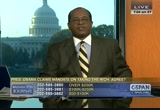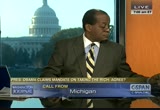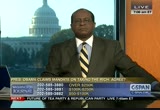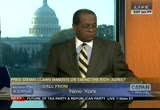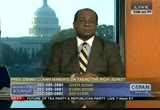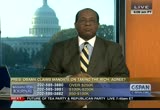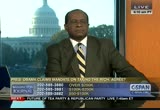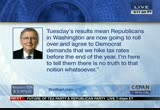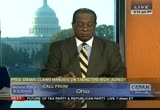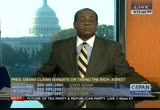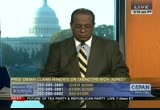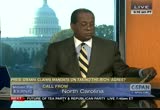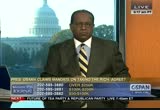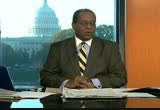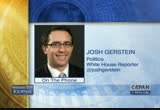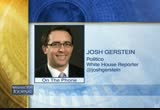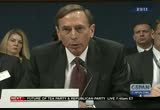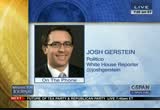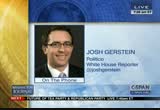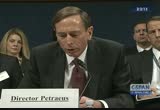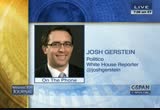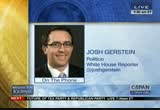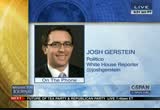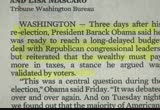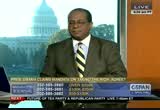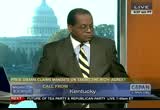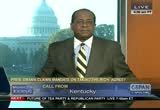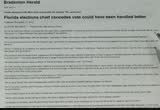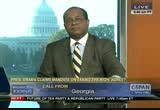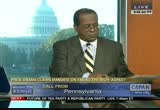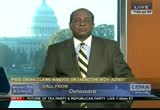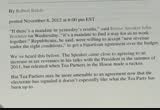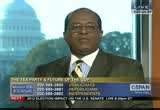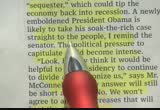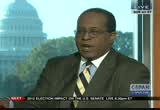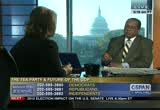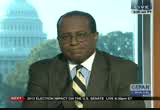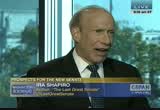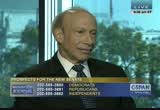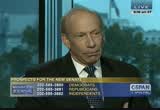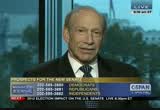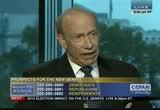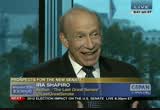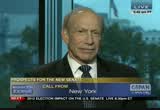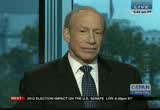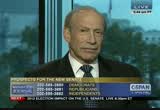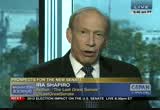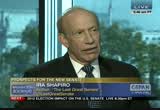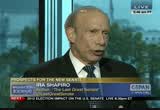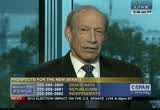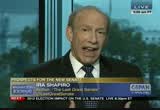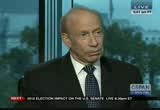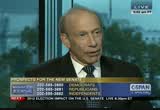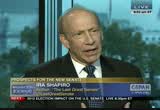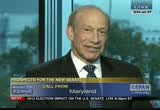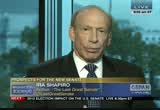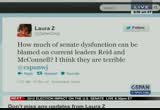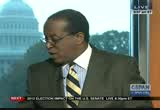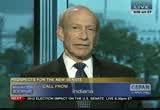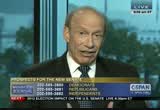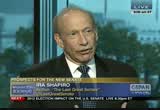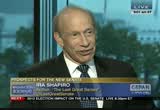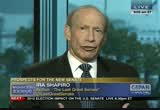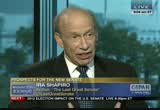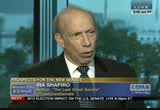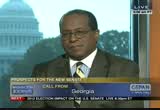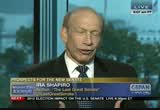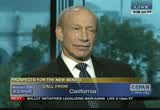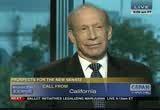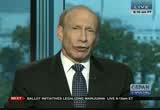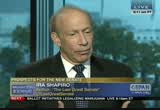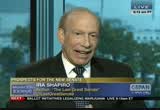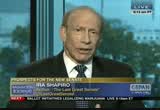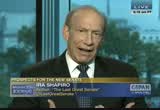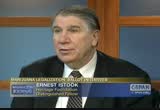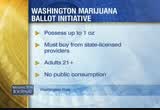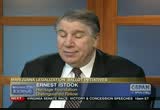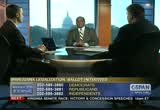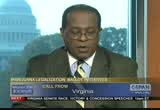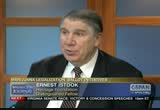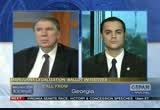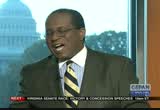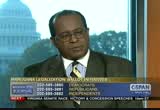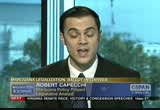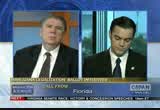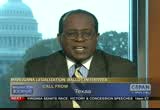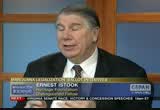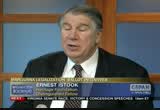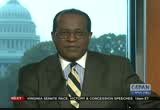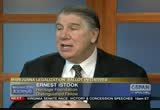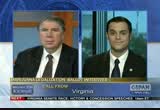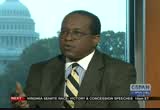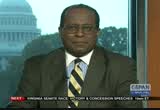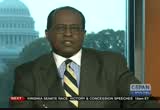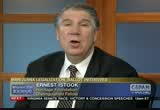tv Washington Journal CSPAN November 10, 2012 7:00am-10:00am EST
7:00 am
capecchi and ernest istook talks about the ballot initiatives on legalizing marijuana voted on in colorado, washington, and oregon. "washington journal" is next5. host: gorning, and welcome to the "washington journal." today is saturday, november 10. we begin this morning by looking at some stories regarding a statement that the president made yesterday in a speech addressing the nation, talking about claiming that the election gave him a mandate on taxing the rich. this is how it was reported in this morning's "new york daily news." they write "president obama claimed an election mandate to make the rich pay more in taxes, saying it is the will of the american people, making his first public appearance since
7:01 am
his victory. obama said he would open talks with republicans next week on how to prevent painful tax hikes and budget cuts set to automatically take place effective january 1." we want to find out from you, your thoughts on the president's statement claiming that the election gave him the mandate or gives him a mandate on taxing the rich, agree or disagree. we've divided the phones in a little bit of a different manner this morning. 202-585-3880 for those making over $250,000 a year. if you're making between $100,000 and $250,000 a year, your number is 202-585-3881. if you make between $50,000 a year and $100,000 a year, your number is 202-585-3882. and if you're making under $50,000 a year, give us a call
7:02 am
at 202-585-3883. we'll have those numbers up on the screen. basically $250,000, $100,000 to $250,000, $50,000 to $100,000, and under $50,000. social media, the addresses are twitter, @cspanwj, facebook.com/cspan, or send us an email to journal@c-span.org. this is more of what was in "the new york daily news" by joseph straw --
7:03 am
host: we want to take a look at what the president had to say yesterday, speaking yesterday. the president again said those making over $250,000 a year should pay more taxes and said a deal extending tax cuts for the middle class should happen immediately. >> already i put forward a detailed plan that allows us to make these investments while reducing our deficit by $4 trillion over the next decade. i want to be clear. i'm not wedded to every detail of my plan. i'm open to compromise. i'm open to new ideas. i'm committed to solving our fiscal challenges. i refuse to accept any approach that isn't balanced.
7:04 am
i am not going to ask students and seniors and middle-class families to pay down the entire deficit while people like me making over $250,000 aren't asked to pay a dime more in taxes. i'm not going to do that. fortunately, we shouldn't need long negotiations or drama to solve that part of the problem. while there may be disagreement in congress over whether or not to raise taxes on folks making over $250,000 a year, nobody, not republicans, not democrats, want taxes to go up for folks making under $250,000 a year. so let's not wait. even as we're negotiating, let's extend the middle-class tax cuts right now. let's do that right now. host: so we're talking about the president's claims that the election gives him a mandate on taxing the rich. do you agree or disagree?
7:05 am
our first call from marietta, georgia. chad makes between $100,000 and $250,000 a year. go ahead, chad. caller: good morning. thank you, first of all. i think it's just not about a particular tax brackett that folks are in. certain folks have said we have to be a sacrifice among all americans. we all have to take some kind of tax increase so that way we can make this country a force. thank you. host: next up is dave in michigan. dave is making under $50,000 a year. dave, what do you think about the president's claim? caller: i don't think he has much ground to stand on there. although i don't make a lot of money, i have to accept the consequence, you know, life, and the consequences of my own behavior, and i have to learn to live with them. i didn't educate myself to the point where i could be making a lot of money, and that was my
7:06 am
will. i fully live within the $40,000 a year that i make. i don't think that the president really has a mandate to raise somebody's taxes. he works real hard for his money. he has a right to keep his money. i just don't get that. it seems to me that i don't pay any taxes, and i should pay some taxes. and if he just let the bush tax cuts just fly away, i believe i'll be obligated to pay taxes again, and that's the way it should be. i don't like being a member of that "47%" that don't pay a damn thing. host: how much would your taxes go up to if the tax cuts -- if the bush tax cuts expire? caller: i haven't calculated it all that much, but i believe that, you know, it's not going to be a painful sum.
7:07 am
it will be a quantity that the government has coming to them, in my opinion. host: candace in the bronx, new york, calls in. she's making between $100,000 and $250,000 a year. go ahead, candace. caller: yes, i agree we should have to pay more in taxes. i think that the president's approach is a balanced approach, and that the government needs resources, it needs revenue in order to run the government. host: do you agree with the president that the outcome of the election is a mandate on taxing the rich? caller: yes. yes, i do. i think that most people agree that we live in a country where we're able to make a decent living, and if we are given that opportunity from the government, then it's our responsibility to give back. and i think that most people -- polls have shown that most
7:08 am
americans agree with with that. they're not against paying more in taxes if they can afford it, if they are earning a good income. host: sarah from waco, texas, makes between $50,000 and $100,000 a year. go ahead, sarah. caller: i agree that the wealthy should pay more in taxes. i do not feel like it is right for those who are disadvantaged to have to pay so that the wealthy can have more. and people don't seem to understand that there was a time where, if you need $100,000, the taxes were 90%, but that was mitigated because there were reductions and people took those deductions and they built this country with it. they built houses, apartments, businesses, employed people. they didn't take the money and sink it in an offshore account and use it to try to manipulate
7:09 am
the political situation in this country. you know, i'm from waco, baylor university, the bible belt. the bible says -- it doesn't say money is the root of all evil, it says the love of money is the root of all evil. and that is what has taken place in this country in the last 10 years. the entire political climate has been changed to profit the wealthy, not the average citizen. it's been thanks to profit, the 1% of the 1%, not anybody else, and it needs to go back to a government of, by, and for the people. there are three things we need to do. we need to reinstate the f.c.c. rules so we will have news, not just the problem we're fed by the corporations that control it. we need to reinstate the banking act of 1933, and we need to get rid of everything but individual donations for political parties. host: we're going on move on to
7:10 am
mark in akron, ohio, making over $250,000. mark, what do you think about what the president said? caller: i agree. i have no problem with paying a higher tax on my business and everything like that. i believe that if you're making more money, you know, you should pay a little bit more. and the medium families and the families that got smaller amounts than the senior citizens, that they ought to pay a smaller amount. i have no problem with that at all. host: what kind of business do you have, and if the tax cuts expire, what kind of a hardship is it going to put on your business? caller: well, i own a construction company. it's not going to put a hardship on me. it will bring down my money when my growth a little bit, but it's not really something
7:11 am
that's going to hurt or kill me or anything like that or put me in the poor farm or anything like that. host: would you have to fire anybody from your construction firm because of this? caller: no, i got 49 guys right now, and we're looking at putting some more on in the spring. we're looking to add maybe 10, 15 guys in the spring. host: did you vote for the president or governor romney? caller: oh, i voted for the president. host: that's mark in akron, ohio. we want to show you the response by senate minority leader mitch mcconnell, republican of kentucky, who writes --
7:12 am
host: lindsey shultz sent us this message on facebook and says she agrees -- host: back to the phones. jay in cincinnati, ohio, is on our line for those making between $100,000 and $250,000 a year. jay, you're on the "washington journal." caller: yes, yes, sir, thank you for taking my call. i just got a quick comment to make. being somewhere in the middle class, slightly hedging up towards the upper middle, basically what i'm saying is what would really help me is -- and i think a lot of people
7:13 am
like the tax bracket -- we did the right thing before the recession, during the recession. i just feel that they lift some of the mandates and tax it on the poor and give you access to your money for, like, say two years, you're allowed to take money out without getting clobbered. i think that would inject a lot of money inside the economy very fast. there's a lot of people that's got money that's invested, can't take money out, that can use the money for other things, for buying extra properties, getting the economy simulated that way. i just feel that if they let you take your own money that you saved and worked hard for and let you pull it out without being taxed to death, that would actually help the middle class more than cutting taxes on the other end. and i don't know what the other people that's in my situation feel that way, but i think somebody should say, ok, 401-k's, you got three years to take this much out, this was the limit, and we're going to
7:14 am
tax you this much if you do not take advantage of this and we go back to the way it was. host: thanks. johnny in texas makes under $250,000 a year. johnny, you're on the "washington journal." caller: yes, die make under $250,000 a year, and i think the bush tax cuts ought to be suspended. host: do you think that the election gives the president a mandate on taxing the rich? caller: i definitely do. it's a mandate, because we knew at 10:00 central standard time that he had already won the election, so that's the mandate. host: all right. we've got a call from -- sorry, we have a message on facebook from ann west, who writes --
7:15 am
host: we've also got this tweet -- host: back to the phones. we're talking about whether or not you agree or disagree that the election gives the president a mandate on taxing the rich, as he has claimed, a statement that he made at the white house. joe bartlett is on our line for those making over $250,000. joe, rather, from bartlett, illinois, is calling on the line for those making over $250,000 a year. go ahead, joe. caller: how you doing? all the politicians who take less pay, then we'd be all right. host: and that would solve the problem, you think? caller: it will solve the problem. all you politicians that are
7:16 am
lining your pockets with money should take less pay. host: what do you think about the president's assertion that the election gives him the mandate to raise taxes on the rich? caller: i think obama should take less pay too and all the crooks in the white house and the government. that's my feeling. host: all right. we're going to move on to jay in asheville, north carolina. jay makes between $50,000 and $ hundred,000 a year. jay, you're on the "washington journal." caller: thank you for taking my call. i don't believe the election gave the president a mandate for much of anything. it was a pretty slim popular vote differential. however, as far as taxes, i would like to see the government tax derivative transactions from the banks. now, you're looking at $700 trillion in derivative transactions, both sales and purchases. a 1% tax on that would give them plenty of money.
7:17 am
i think they should leave capital gains and interest alone. thank you. host: thank you. our next call comes from tarboro, north carolina, dana, making between $100,000 and $250,000 a year. go ahead. caller: good morning, sir. thank you very much for answering my call. i'd like to share with you -- i don't know how to get this information out, but i understand that we all need to pay taxes. the government also needs to find areas where they can do, you know, tax cuts. but what really concerns me is that if they mandate these tax changes across every county, you know, in every state, you know, of the united states, that our county is already paying the highest taxes in the state of north carolina, and we are the most rural. so what ends up happening is they continue to tax the middle class, then, you know, it's going to push more of our
7:18 am
working-class people in this rural area into the poverty level to where now they're becoming eligible for welfare programs. and i don't know how to get that information out. i don't know if they can do it by sectors or, you know, take any geographical areas into consideration. but my county in north carolina is extremely struggling, and more of our middle class are being pushed down to a poverty level. host: deena in north carolina. we're going to take a break from our discussion regarding the president's claims that he has a mandate on taxing the rich to talk about another story in the papers this morning. the headline in the "financial times" weekend edition, petraeus resigns from c.i.a. over affair. joining us to talk to us about the story on the phone is the white house reporter for
7:19 am
politico. here to talk to us more about the resignation, josh, welcome to the program. so, tell us, how did this whole story break? it came about fairly quickly after some discussion or some rumors started circulating early in the morning yesterday that general petraeus might have been on his way out. guest: yeah, we heard -- the first i heard of it were some somewhat sketchy reports on msnbc yesterday with andrea mitchell saying that petraeus was involved in some, you know, fairly weighty discussions about his future with the white house and that his future status was not entirely clear. at that point, what people thought was that the discussions probably had something to do with the episode in benghazi in september and, you know, the intelligence that flowed or failed to flow from that to the white house in a timely fashion. however, within the period of an hour or so, really while the
7:20 am
white house briefing was taking place yesterday, it became clear it was something, at least on the surface, quite different than that, and within a short time we had statements from petraeus and from the director of national intelligence, jim clapper, saying that he would be leaving. the amazing thing really was that petraeus' statement explicitly acknowledged the reason he was leaving was because of an extramarital affair, which is pretty unusual thing to see in the formal announcement from a high-level official. host: you wrote yesterday, and we got this from the newjersey. .com blog of the new jersey star ledger, so when petraeus fell from grace friday, the drop was a long one. it stunned the political world precisely because he was so widely regarded as the model modern soldier, a thinker in fatigues who married the daughter of a superintendent of his alma mater, west point, and earned a ph.d. at princeton. but neither his reputation nor his career could survive the
7:21 am
shock of the extramarital affair he revealed in resigning from his post, a decision that came under the pressure from an f.b.i. investigation that threatened to make things even uglier, according to an intelligence community source who spoke to politico on the condition of anonymity. so tell us a little bit more, josh gerstein of the politico, tell us about this investigation by the f.b.i. and what's been the fallout so far in washington about the announcement that the general was going to resign from the c.i.a. guest: well, we still don't know too much of the detail about what was going on with the f.b.i. there are a lot of reports out there, and, in fact, it is true that part of this investigation by the f.b.i. had to do with the question of whether somebody was improperly accessing petraeus' personal email accounts. you know, however, the sources that we spoke to said that wasn't really the entirety of the investigation or the thing that really got it rolling. but at some point, for whatever
7:22 am
reason, the f.b.i. became concerned that somebody was getting into his account. now, you can see a variety of reasons why they might be worried about that, being the head of the c.i.a.. he's certainly someone that you would not want hackers or foreign intelligence people getting into any of his accounts, personal or professional. the f.b.i. apparently was exploring that, and in the course of going through these emails, found a lot of material that seemed to indicate that he was engaged in some kind of an affair. i think it was not immediately clear because of the language in the emails what the precise nature of this relationship was, and it immediately drew the f.b.i.'s attention because, you know, if you have discussions going back and forth, you know, again, that could be some sort of code for a relationship with some sort of intelligence source or somebody that's gathering intelligence, and that's not apparently at all what went on here, but it was enough to
7:23 am
bring this affair to the fore. in terms of the washington reaction, people were genuinely stunned, and some people said basically that petraeus shouldn't go. you had senate intelligence committee chairwoman dianne feinstein said in a statement she wished the president had not accepted his resignation. we're going to have a story up later this morning on politico talking about what it would have been like if petraeus stayed on despite the fact of this affair having been revealed, and i think the problem would have been, in addition to just the scandal nature of it, the perception that there was a double standard. we've had sort of similar incidents that have shut down other people's careers in recent years, and the c.i.a. director sometimes had to make decisions about somebody maybe who wasn't candid about a relationship with a third-country foreign national or some other aspect of their personal life, and he would be in a position of potentially dismissing someone from the c.i.a. for that kind of
7:24 am
conduct. that would be an awkward situation to say the least if he himself had engaged in some perhaps unreported relationship with somebody other than his wife. host: earlier this year, in fact, last month, you worked a story detailing the ex-c.i.a. officer who pled guilty to leaking information regarding the interrogator of al qaeda leader abu zubaydah. in the article, you quote, you and kevin cirilli quote general petraeus, the general saying that oaths do matter, and there are indeed consequences for those who believe they are above the laws to protect our fellow officers and enable american intelligence agencies to operate with the requisite degree of secrecy. accordingly, i thank our legal specialists for their contributions to this effort, and i appreciate the hard work
7:25 am
and dedication of the men and women of the department of justice in bringing this case to a successful conclusion. now, as far as i understand, there's been no talk about whether or not the general was involved in anything criminal, but do you think that that statement sort of foretold what was to follow and how the justice department, in effect, would be involved in his resignation? guest: well, i think the two situations are different, quite different, as far as what we know right now. as you say, there's no indication that petraeus leaked any classified information or provided any classified information to paula broadwell, the woman reported to be involved here. however, i do think you have an appearance problem and an optics problem when the intelligence community -- and indeed, congress itself says that it's currently on a crusade to stop leaks and improper contacts with the media and unauthorized disclosures, and then you have the head of the central
7:26 am
intelligence agency, at least for some time, have a relationship with a journalist that was not publicly known. now, broadwell is not a traditional journalist. she's a former military officer herself who was writing a dissertation that later became a book, but it was ultimately a book that was co-authored with a reporter for "the washington post," so broadly speaking, she's a member of the media. you know, you had senator feinstein yesterday saying that petraeus shouldn't go, but just a few months earlier, senator feinstein's committee was proposing legislation that would require anybody in the intelligence community to report any single time -- or every single time they had a contact with a member of the media. so, again, all these discussions about leaks and about people's relationships with outsiders would have been so much more awkward if petraeus' relationship here came to public light. what's not clear to me right now is whether it would necessarily have come to public
7:27 am
life or why he acknowledged it to the white house a day or two after the election. you know, perhaps there was some shoe to drop here or there was some reason why this matter would have come to public attention, and then therefore, could have led to sort of charges of hypocrisy and double standards. host: part of the speculation that you allude to is the fact that the general was scheduled to testify next week in congress to what he knew and how he was involved in the dissemination of information regarding the attack on our consulate in benghazi, and the speculation is that the shoe was allowed to drop in order to keep him from testifying next week. is that going to be the case? will he not testify next week? or is he still going to be called in front of the intelligence committee? guest: well, the fact that he would be the former director, departing director, doesn't mean he can't be called. but my understanding is they're going to send up the acting
7:28 am
director of the c.i.a., who was the deputy director there, to testify about this issue. that said, you know, i could see him being called, could see petraeus being called in the future if he has relevant information. so people are thinking that his exit is a great way to, you know, shut down completely any inquiry into benghazi, i don't think that's likely to happen. however, you know, a lot of people in the intelligence world do think that the punishment here that's being visited on petraeus is somewhat larger than what is usually applied in these situations, and that, in fact, sometimes affairs are allowed or reported and go on among people at the c.i.a. and never cause a kind of work action or anything along those lines. so those folks especially are inclined to believe that there's something more here that the white house may have been eager to try to clear the cloud over benghazi by getting rid of petraeus, but i don't know, those explanations are a
7:29 am
little bit lacking to me, because petraeus was so well liked on capitol hill, you had the statement from feinstein, you have all kinds of other people that regularly express praise for him. you have republicans who at one point wanted him to run for the presidency and thought that he would pretty much win that office almost by acclimation if he just threw his hat into the ring. so i'm not sure if he's the ideal person to become a sacrificial lamb to sort of end congressional inquiries into what happened in the attack in benghazi. host: there's already been discussion around washington about who would replace general petraeus as the head of the c.i.a. among the folks being discussed are the acting director, michael morell, as you alluded to, also jane harman, former u.s. representative, now head of the woodrow wilson international center for scholars, former chair of the house intelligence committee, i believe.
7:30 am
and also, john brennan, homeland security advisor to president obama. talk to us about who may be stepping in to fill the shoes of general petraeus. guest: well, you know, morell is considered sorted of the most likely candidate because, you know, having been the deputy director, he could relatively easily just step in to the directorship, very, very intimately familiar with the agency. the other people are all possibilities, but you need to remember that intelligence jobs have been a little bit hard for the obama white house to fill recently. you had director of national intelligence, jim clapper, nominated some time ago to run the overall intelligence operation and it was reportedly very difficult for the white house to find somebody to take that job. it was reportedly offered to several other people before clapper finally took it. so it would be interesting to see who would be on the list to
7:31 am
do this. it's also a job where the white house, you know, has not given the c.i.a. director a huge amount of latitude. there's pretty strong control from the white house of what the c.i.a. does and where. and then the final thing is, you really would need someone with a strong relationship with congress. if you look at who served in this job before, leon panetta and petraeus, one thing they have in common is that they both were very, very well regarded on capitol hill. their word was basically gold up there. and if they said something was happening or not happening, or that it would be resolved or gotten to the bottom of, members on both sides of the aisle pretty much took that for granted. so you'd want people that could fulfill that. former congresswoman harman would probably fit into that category, very well respected and a very well known voice on intelligence and military issues. i think the question would be whether she would want to come
7:32 am
back from her job heading the woodrow wilson center so soon after she basically quit the congress. john brennan, the president's counterterrorism advisor, would be another choice that i think would probably be very easily confirmed on capitol hill. however, the problem is the president has really come to rely on brennan as his right hand man throughout his presidency on all the issues of counterterrorism that arise, and those are not all c.i.a. issues. i think the president would probably be very reluctant to have brennan leave his side and go work full-time at the c.i.a. and only have him sort of around occasionally. some of the other names on the list are possibilities, but the question would be what the confirmation process would look like with congress, because both brennan and tom donlan have been considered for various jobs, but the administration seems to have reluctant to put them through a confirmation process because of either issues or resistance that they might face in the
7:33 am
senate. host: josh gerstein is the white house reporter for political coast and has been talking about the resignation yesterday of c.i.a. director, general david petraeus. the general cited an extramarital affair in explaining the reason why he was resigning. josh gerstein, thanks for being on the "washington journal" this morning. guest: happy to do it. take care. host: we're now going to continue our discussion regarding the president's claims that the election gives him a mandate on taxing the rich. in the "baltimore sun," the headline, "obama opens to compromise."
7:34 am
host: we're going to continue our discussion regarding the president's claims that the election gives him a mandate on tacking the rich. jay is calling from louisville, kentucky. jay is making under $50,000 a year. jay, you're on the "washington journal." thanks for waiting. caller: yes, i think if it's going to be risen, it should be for everybody, not just the wealthy. host: so you would say that it would be ok for the president to raise your taxes as well? caller: well, i won't like it,
7:35 am
but i don't think only the upper income should have to do t. he didn't have a mandate with 31%, and his compromise means for everybody. host: let's move on to bob in randolph, vermont. bob is making over $250,000 a year. go ahead, bob. caller: yeah, i live now up in vermont. i'm calling you from my home in florida. i think just the dirty little secret is that those of us that are making hundreds of thousands of dollars are able to write it off. the money we're paying taxes on, this is not a tax increase, this is something that was sunset years ago. my republican friends have been able to rewrite the language to talk about it as being a complete tax break now, but we're sunsetting something that
7:36 am
was supposed to be sunset several years ago. host: do you agree with the president that the election gives him a mandate to raise taxes on the rich? caller: i think mandate might be a pretty strong term, but i remember in the campaign right now, obama was talking about this, the fact that he was going to do this, that he was going to go for this from the very beginning of the campaign. he was right out there with it. mitt romney was certainly campaigning against him because he didn't want this to happen, so the president was very clear and forth right from the start of the campaign that this is what he was going to go after, and i don't think we should be too surprised about it now. host: bob in randolph, vermont. bob talked about what the president talked about on the campaign trail, and part of that is reported in "the daily news" this morning, "the new york daily news," "slight change of plan" is what they have here at the top --
7:37 am
7:38 am
my call this morning. appreciate it. i believe that with petraeus, who was on just a few minutes ago, i believe he's kind of a distraction, not what he's done is not worthy of consideration, but i believe he's more of a distraction right now and what we ought to be doing is paying attention to the tax situation. i believe the president was handed a mandate, even though he didn't receive a large, large portion of the popular vote. he still did win by popular vote. and if we look back just a few years, we see the democrats were brought back into office by almost a landslide not that long ago, and it was under a circumstance where taxes were a problem at the time still, and i think that's what the american voter is trying to say. they believe that at this time that the tax should be reformed for people who are in a higher
7:39 am
position are paying a larger portion. if you were to go back to a time when finances were much better back around the kennedy era, the capital gains tax might have been closer to 80% or 90%. and when you've got people who, like, romney, who are living off of their interest and paying only 13% taxes, you can see that there's such a disparity in what is being paid by people with large amounts of money compared to people who bring in a lower amount of money. host: that's a caller from paducah, kentucky. this is from the bradenton herald. we're going to look at other stories in the news this morning besides what we're talking about regarding the mandate the president says he got from the election. the headline, "florida elections chief concedes vote could have been handled better." they write, as his top elections officials conceded that the state bears
7:40 am
responsibility for long lines and late vote counts that have made florida a target of national ridicule, governor rick scott on friday defended the state's handling of the election. we could have done better. we will do better, the secretary of state said on cnn during pointed questioning from the anchor. but in an exclusive interview the "herald times," scott made no apologies for what led to an incomplete vote, three days after the election. what i'm trying to do is improve the way government works, scott said. i believe in efficiency. i believe every vote has to count. i want to have a good process that people feel good about. back to the phones, talking about president obama's claim that the election gives him a mandate to tax the rich. the next call comes from kim in mayor the a, georgia, making between $50,000 and $100,000 a year. go ahead, kim. caller: hi. i don't think the election
7:41 am
gives him a mandate for anything. i also believe that you're not going to be able to really truly affect the situation by taxing the upper -- there's not enough money. you have to tax the middle class. the middle class is the biggest class, and, you know, when obamacare goes through, there's going to be like 20 taxes go through on the middle class. so when people voted for obama, they voted for a big tax when you en expos all this free medical care, supposedly free medical care, and the upper incomes, you know, i think they said so many days. host: sorry. we're going to just leave it there. next up is a story that we have from the -- from olympia, washington, washington state has approved gay marriage, joining maine and maryland as the first states to pass same-sex marriage by popular
7:42 am
vote with about 3/4 of the expected ballots counted thursday, referendum 74 was maintaining a lead of 52%. opponents conceded the race thursday, while supporters declared victory a day earlier. zach silk, a spokesman for washington united for marriage, called it a historic day. back to the phones. david calling from camp hill, pennsylvania, makes under $50,000 a year. go ahead, david. you're on the "washington journal." caller: yes, i think people need to remember that the mandate that 9 president received was based on the president's convincing argument that we need to raise taxes, which is ultimately based on the independent steads that he received, that this was the right course, that this would turn the economy around. and the same token now, i think when it comes to small businesses, we have to tread
7:43 am
lightly, because we don't want people to be -- the companies to be laying employees off, and i think the way that you can achieve that is to take each of these individual businesses, the ones making $250,000, and maybe they could explain how it is that it would hurt their business. scommoip we're going to leave it there and move on to lance in magnolia, delaware, making between $100,000 and $250,000 a year. lance, you're on the "washington journal." caller: yes, thank you for c-span. i've been paying close attention to this for quite some time now. first of all, i'd like to say that the democrats like to say that they're all about fairness. well, with the tax code, it's not fair from the standpoint that those who don't make very much money pay no taxes. everyone needs to have skin in this game. and i think it needs to be, as
7:44 am
been proposed, a fair tax, where there's a straight percentage. i don't care how much money you pay, you should pay the same rate. therefore, people who make a lot of money will pay a lot more taxes. and also remember that those that are the very rich, if you will, over $250,000 a year income, and i can tell you right now, i make just barely over $100,000 a year of income, and i worked hard for that, that's not a lot of money. but over $250,000, even if you tax those people at 100% of their tax, it's still not going to make much of a dent, if anything, in the overall debt. the main issue here is government spending. i have worked in the government for many years, and i can tell you, there is a lot of waste, inefficiency, fraud. we need to take a close look at that. i would just like to say that americans need to be a little more open-minded and fair about how they address this issue. host: in other news today, california representative mary bono mack is conceding her
7:45 am
seat. representative mack today conceded her race to democrat raul ruiz, who joins a large freshman contingent in the state's delegation. ruiz was leading mack by 4,679 votes as of thursday evening, with thousands of absentee and provisional ballots still to count. dr. ruiz will do a fine job if he is guided as well by the people of the congressional district as i was. please give him the opportunity to succeed, bono mack said in a statement. we want to thank all the folks who participated in this particular segment of the "washington journal." we want to let our viewers and listeners know that coming up, a discussion on the impact of the tea party in the 2012 election. and later in the program, author ira shapiro will join us to look at the prospects for compromise in the senate. this is the "washington journal." today is saturday, november 10. we'll be right back.
7:46 am
>> here's a look at some books being publish this had week. jon meacham recounts president thomas jefferson's political prowess in "thomas jefferson: the art of power." in "the patriarch," david nasaw chronicles the life and career of the father of the political dynasty. judge andrew napolitano argues that presidents theodore roosevelt and woodrow wilson disregarded the constitution to promote their own political agendas in "theodore and woodrow: how two american presidents destroyed constitutional freedoms." in "far from the tree," national book award-winning author andrew solomon examines how parents are challenged and changed by exceptional children. fox news host greg gu feld has
7:47 am
"the joy of hate." the contributing editor for "rolling stone" magazine and native of the detroit area reports on the influx of people working to reimagine his hometown in "detroit city is the place to be: the afterlife of an american met pop police" in. in "the outpost," jake tapper, white house correspondent for abc news, reports on combat outpost in afghanistan and the pentagon investigation that determined the post was unnecessary after numerous soldiers had already lost their lives. look for these titles in bookstores this coming week and watch for the authors in the near future on book tv and on booktv org. >> 2013 should be the year we begin to solve our debt through tax reform and entitlement reform. and i'm proposing it's going to
7:48 am
be a fiscal cliff together in a manner that ensures that 2013 is finally the year that our government comes to grips with the major problems that are facing us. >> i'm open to compromise. i'm open to new ideas. i'm committed to solving our fiscal challenges. but i refuse to accept any approach that isn't balanced. i'm not going to ask students and seniors and middle-class families to pay down the entire deficit while people like me making over $250,000 aren't asked to pay a dime more in taxes. >> the newly elected congress starts work in january, but the current congress still has work to do through the end of the year in what's typically referred to as a lame-duck session. work is expected on the impending fiscal cliff, including the expiration of the bush-era tax cuts, the federal deficit, raising the debt ceiling, and by how much, and planned cuts to domestic and military spending, also known as sequestration.
7:49 am
follow all the floor debates starting tuesday at 2:00 p.m. eastern with live house coverage on c-span and the senate on c-span2. >> "washington journal" continues. host: amy kremer is chairman of the tea party express and is here to talk to us about the tea party and the future of the republican party. welcome to the "washington journal." guest: thanks for having me. i'm happy to be here. host: we've got an article here from the "christian science monitor" with the headline, "will the tea party compromise." he writes, tea petitioniers may be more amenable to an agreement on tax revenues now that the electorate has signaled it doesn't especially like what the tea party has been up to. he goes on to say, if there's a mandate in yesterday's results, said speaker john boehner on yesterday, it's a mandate to find a way for us to work together. republicans, he said, are willing to accept new revenue under the right conditions to get a bipartisan agreement over
7:50 am
the budget. your thoughts about what robert reich had to say and what the speaker is saying. guest: well, you know, i think that we need to find some common ground. obviously we're facing this fiscal cliff, so we have to find some common ground. everybody's talking about revenue, nobody's talking about cutting. that's really what we need to be focusing on, because you can tax people into oblivion. at the end of the day, you're going to run out of their money, and you've got to cut the spending. you can't tax enough to cover the spending. so i want to hear about the cutting as well, and i think that's probably what most people, you know, in the tea party movement, they would agree with me on. but what i will say is that while, you know, he says that the electorate is not happy with what the tea party movement has been up to, i have to say that our approval numbers, we have more support than congress does.
7:51 am
so, you know, i don't think that going after the tea party on this is -- i mean, it's not the right thing to do. all we want is for washington to live within their means. host: give us your thoughts regarding the outcome of tuesday's election. disappointed about the re-election of the president, but beyond that, talk to us a little bit about how you think the tea party influenced the election one way or the other. guest: well, i mean, i was obviously disappointed, not only in the presidential race, but the senate. i expected us to take back the senate. obviously we didn't. but, you know, we are going to keep moving forward and trying to hold washington accountable, and as i said, you know, get washington to live within their means. when families and businesses across this country are having
7:52 am
to balance their budgets and not spend more than they take in, it's not unacceptable to expect the same of our federal government. so while we are disappointed, it doesn't mean, you know, that we're going to give up and go away. we're still here. we're not going anywhere. as a matter of fact, i think it's probably going to strengthen the movement. host: in this morning's "wall street journal," top ohio republicans ask why the party lost, failed voter turnout, a surge of african-americans at the poll, and a lack of love for the candidates cited as explanations. pick any one of those three and talk to me about your feelings about what they're saying and what effect, if any, the tea party may have had on one of those three, either a failed voter turnout, surge of african-americans at the poll, or a lack of love for governor romney from the republicans. guest: well, you know, in terms of the lack of love, i wouldn't
7:53 am
say that it's specifically romney. i would say people are fed up with the republican party. that's one of the reasons the tea party movement was born, because it was frustration and anger with both parties, but especially the republican party. and so, if there's anything we've heard over the past several days since tuesday, it's that people are tired of the moderate stance of the republican party and, you know, they want true change. they want true fiscal conservatives. and so i think probably that had some impact on it. host: we're talking with amy kremer, chairman of the tea party express, about the tea party and its future, also the future. republican party moving forward. and we want to get you all involved in the conversations. the number is 202-585-3880 for democrats. 202-585-3881 for republicans. independents, 202-585-3882.
7:54 am
if you're calling outside the u.s., 585-3883. you can also reach us via social media on twitter, facebook, or even send us an email. our first call for amy kremer comes from shelly in alabama. she's on our line for democrats. go ahead, shelly. shelly, are you there? caller: hello. hi, everyone. guest: hi. caller: my -- i'm calling from my state, georgia, is republican, but the tea party, i know it came about after obama, president obama's election. it was the first time. i just don't understand why we all can't get together. i know that america is based on individuality and people
7:55 am
wanting to have a piece of the pie, but why -- it just appears that the tea party is so divisive, and i don't understand that. you know, sometimes it appears that since president obama has become president, that i've never seen so much disrespect for the office of president. oip amy kremer? guest: well, thanks for your comment, shelly, and i would to say we're not divisive. i mean, we've gone after republicans and democrats alike. we are an issues-oriented movement, focused on fiscal responsibility, limited government, free markets. that's all we're focused on. and as i said before, we want washington to live within their means. so, you know, it's not that we're here just to challenge the democrats. we're here, and we've done it, we've primaried republicans before. so i don't think that expecting our federal government and our state and local governments to
7:56 am
live within their means is very divisive. i think that that is something that is absolutely reasonable and that all americans should expect of our government. host: next up is larry calling from canton, massachusetts. he's on our line for republicans. go ahead, larry. caller: good morning. hi, amy. i can respect some of the thoughts of the tea party, and she's right, we should start to live within our means. but the same time, you must look at the situation that president obama has dealt with. you know, you just can't say across the board that there should be no taxes. and also, for the future of the g.o.p., if you look at what cost him the election, if you're not inclusive of everybody, of everybody, you just can't win anymore. i just think the tea party has some merit, as do black republicans, and also someone making over $200,000, small business in massachusetts,
7:57 am
we're doing very well, thank you, but they have merit. so somehow i hope we're going to come together and sit down and say, ok, what can we do to keep us within our means, but the same time, i also support the country and picking on the debt, balls i got kids, so i agree with amy to some degree, because i can also a republican as well. host: layer any massachusetts. amy kremer? guest: look, i mean, i am in no way -- and i think every tea partier out there would say we are not, you know, we're not -- we understand that we have to pay some taxes. i mean, we have an infrastructure. i mean, there are things that have to be paid for. but you cannot continue to tax people and continue the spending, because like i said, you're going to run out of other people's money. why can washington not cut the
7:58 am
spending? i mean, they are up here with our credit card just spending, spending, spending, and this debt is going on the backs of our children and our grandchildren and all future generations. i mean, at some point you have to cut the spending. host: next up is paul in elizabethtown, kentucky, on our line for independents. paul, you're on the "washington journal" with amy kremer, chairman of the tea party express. caller: good morning. guest: good morning. caller: i was going to ask you a question. how come the republican party sign something -- you know, they pledge to one person -- how can you do that? it is nothing but a lobbyist. guest: i'm sorry. i didn't -- caller: i talk about grover norquist. all the republicans, they signed this pledge to him, who is he? he's nothing but a lobbyist.
7:59 am
host: all right, paul in elizabethtown, kentucky. your thoughts about grover norquist and the pledge that he asked folks in congress to sign, about not raising taxes. guest: well, i mean, i think that he, you know, is right there with me, that, you know, at some point we have to cut the spending. you know, why are we talking about taxing more, you know, individuals, americans that are citizens? why don't we talk about closing some of these corporate tax loopholes so that these big corporations will pay taxes? that would generate some revenue. there are other ways to generate revenue, but when all you do is go out there and talk about raising taxes on the rich, number one, it's creating this class warfare, and it's going to affect the business community, the small businesses. and so i think we need to do a better job at educating people on how the economy works. i mean, i'm learning stuff every day. i'm certainly not an economist,
8:00 am
and i don't fully understand it at all, but, you know, there are small businesses that pay income taxes and, you know, if we go and we tax them as individuals, it's going to take money out of their business and, you know, they may have to lay people off. i mean, they may not be able to hire people. i mean, it's a huge the economy is complex. you are going to run out of other people's money. host: according to this chart we have from the tax policy center, the president is talking about ending tax subsidies for the oil and gas industry and says it will raise $40 billion over 10 years. is this something the tea party can live with? >> i do not know. -- guest: i do not know. we have to find some common ground because we cannot
8:01 am
continue down this road. we have to put everything on the table and look at it all and, hopefully, find some common ground. we have got to stop playing this party politics stuff. the media wants to put the republicans and the democrats into a boxing ring and see who comes out the winner. we need to find common ground where americans win, where we put this country back on the path to prosperity where we remain that shining city on the hill and put people back to work. party politics got us into this mess. host: our next call for amy kremer, chairwoman of the tea party express, comes from ronald. caller: good morning. i just want to say the president
8:02 am
wants to raise taxes on the rich to pay their fair share. one thing i will say is, all of this time during his campaign, all of the republican businesses and rich folks spends thousands and millions of dollars toward the campaign for romney. yet they do not want to pay their fair share. that does not make sense. they spent all that money and now they say, we cannot do that. think how much money would have helped this country get better. but still they say no. give me a good answer on that. guest: the democrats spent $1 billion, too. i think $6 billion was spent in this election. i think that is two different subject their -- there.
8:03 am
the money being spent thyrsus people paying taxes -- by not think they have anything to do with each other. most people understand that money is involved in politics. that the way politics is. host: amy kremer is the chairwoman of the tea party express. we are talking about the tea party moving forward and the future of the republipa prior to 2008, she had never been involved in politics. she was one of the original founders of the atlanta tea party and was the coordinator of the first round of tea partiers that took place across the country. phyllis is on our line for republicans. caller: good morning. i was calling because i wanted to the carriage the republican party. i wanted to tell them to stay on principle. the campaign that the democrats
8:04 am
ran was so low. i do not think romney lost because of tax issues. it characterized him in such a way that they scared a lot of people. they really trashed him. i think he was a good candidate. i think he was a compassionate man. the way they ran their campaign, he scared a lot of people. half of the country did not votes for obama. he does not have a mandate on anything. it was not about prejudice. it was about principle and performance. his performance has been poor. if he did not perform a wide -- right whether he was black or write -- white, he needs to leave office. guest: thanks for your comment. i have to agree with her. the president has not lived up
8:05 am
to what people wanted him to live up to. i agree that there is no mandate. half of america did not support him. it shows we are still a divided country. president obama understood the fiscal crisis we were facing when he took office in 2008 because he promised to pay down the deficit in half in his first term. not only did he not pay it down, he doubled it. either people do not remember or they do not understand or they do not know that his first two years in office, he had a democrat-controlled senate and a democrat-controlled house. he could have done anything he wanted. they did not focus on that. instead, they crammed obamacare down our throats. he was reelected, but the polling shows going into this election the people were concerned about jobs and the
8:06 am
economy. exit polls show they were still concerned about jobs in the -- and the economy. 52% of americans think the country is not headed in the white house -- right direction. people voted on electability and personality and not policy. we need to do a better job of educating people on how the economy works and what is going on here. this is not good for america. host: in this weekend's edition of the wall street journal, mitch mcconnell is interviewed. the headline is, we have a mandate not to raise taxes. they quote the republican senator as saying, i am not willing to raise taxes to turn out to be sequestered. -- to turn off the sequestered.
8:07 am
- sequester. -- sequester. are you in agreement with senator mcconnell that this is not a mandate to raise taxes and if they cannot come to some kind of compromise, they should go ahead with the sequestered? guest: i have said before that i do not think raising taxes is the answer. we need to talk about cutting spending. i do not know what the answer is. on the sequester, i heard someone say this morning on cnn or fox that without a cut in spending, our gdp would be 1.3%. our economy is anemic right now.
8:08 am
we need to do things that are necessary to get rid of these burdensome regulations and put some lower taxes -- let corporations close the tax loopholes and generate revenue that way. we need policies in place. businesses do not operate on twelvemonth plants. they operate on three, five, 10 your plants. there is no confidence in washington. businesses are sitting on a bunch of cash and not spending in our hiring because there is no confidence in washington. they do not know what is clear to happen next year or with their tax rate is going to be. we need to focus on these policies and create a pro-growth environment so that these businesses will have confidence in washington again and they will invest in their organizations and hire people. we are never going to create a
8:09 am
pro-growth environment when they are doing things on twelvemonth plans or 18 months. it is not acceptable. look at what just happened in benghazi. we have to protect ourselves. we were attacked here on 9/11 on our own soil. host: when was there ever a period in our history where what was going on in washington guaranteed someone going into business that their business is going to be a success? and the success was not based on the performance of the business or the ability of the person who had the business to sell the product or service that he was putting out? guest: when in history has that happened? host: you are saying that people who are either in business of trying to go in business are not
8:10 am
doing that because they are afraid what is happening here in washington. what i am is saying is, go ahead and take that chance. put your business together and see if the market will support it, if the consumers will support it. do not worry about what is going on in washington. guest: there is no confidence. we saw that this week when president obama was elected with the number of businesses announcing layoffs. wall street was plunging. there is no confidence here. there is no confidence in what is going on here. washington should not choose winners and losers. that is not washington's place. that is one of the reasons we had a big problem with the automobile bailout. washington should not choose winners and losers. people come here and start businesses because it is the land of opportunity. you work hard.
8:11 am
you do what is right and you are successful and you are awarded for that. washington should not be picking winners and losers. host: the skull back to the phones and continue our discussion with amy kremer. our next call comes from maryland on our line for independents. caller: thanks for taking my call. i think the supreme court's recent ruling on contributions allowed the tea party to even be in existence. i believe contributions are tax- deductible. what is the black membership for the tea party? i see that most of the tea party members are a.k.a birthers. i feel that the tea party is nothing but a racist cabal.
8:12 am
guest: there is nothing further from the truth. one of our spoke persons is lloyd markets, and african americans. there are plenty of african -- lloyd marcus, an african- american. there are so many americans as part of this movement. i have to disagree with him. we had nothing to do with the supreme court ruling on political contributions. most of the people in the tea party movement are just like myself and have never been involved in politics. i do not know why he thinks that. in have nothing to do with the supreme court ruling. host: we have a tweet from c hris jones. he says, the truth of this
8:13 am
election is that because of the tea party, republicans can allow the field and let the boat presidential candidate. your thoughts. -- can no longer field an electable president candidate. guest: i have to disagree with that completely. they put up a mainstream candidate. host: calling on our line for democrats, you are on "washington journal." caller: thank you for taking the call. thank you, miss amy. once you mention the tea party is more popular than the senate. where does that information come from? you also mentioned that the other party, or the president,
8:14 am
that they do not want to touch the spending. why has the president mentioned he has ready to -- is ready to compromise. is the tea party ready to compromise at all? what kind of taxes would you accept to be opposed to about -- opposed? the aim of the president is to generate jobs and not inhibit the growth of the economy by taxation. specifically, what kind of taxes are you going to except and are you going to work with the president, compromise? guest: he asked about the polling and where i got that. i am referring to -- i do not
8:15 am
have the specific poll. most people know congress' approval ratings are in the tank. that is what i am is referring to. in terms of compromise, compromise is not a bad word as long as you do not compromise on your principles. you have to find common ground and what is good for everybody. it is going to be a hit-take. like i said -- a give-take. like i said, it is not that one party have to become out as the winner. how can we come out winning? backing up up by the -- backing away from the fiscal cliff. that is what we need to do. this is what i will say. everybody wants to lay it on the tea party movement.
8:16 am
the fact of the latter days, under harry reid's leadership, the senate has not passed a -- the fact of the matter is, under harry reid's leadership, the senate has not passed a budget. the president has passed -- has presented three budgets. everyone of his budgets have gotten 0 votes, even from his own party. they have not reached across the aisle he the. i am tired of everybody putting it on the tea party -- they have not reached across the reachedeither. i am tired of everybody putting it on the tea party movement. caller: quick question. why wouldn't the elimination of tax loopholes and a flat tax rate, proposed by steve forbes, work with the more you earn, the more you pay?
8:17 am
guest: i am not an economist. i am not an expert on this. we need tax reform. we have a complicated tax system. specifically, what kind of tax reform, i am not sure. we definitely need tax reform. host: otis is calling from prosperity, south carolina on our line for independents. calm first, i would like to say the my representative, -- caller: first, i would like to say that my representative, lindsey graham, has rescinded his pledge for the norquist pledge. we have some republicans finally realizing we have to get this deficit under control. if the deficit is doubled, that
8:18 am
means george bush's part of the deficit is half. republicans have never wanted to pay their share of the debt he has created. we have to get somebody in there that is going to help pay the deficit. i am middle income. the last payroll deduction i got, i saw $6 more a week on my check. i would rather you take that $6 back and help pay the deficit off. i am tired of this war. bill clinton and george bush start two wars and do not want to fund them. here we are with the mess we have got. guest: i have to tell you, i am tired of people blaming it on bush. at his buddy says bush took us to war and the war is what created all of this debt. bush did not take us to war on
8:19 am
his own. democrats voted for that war, too. congress voted for it. you cannot pay it all on george bush. under present obama's term as president, we have accumulated -- he has accumulated 1/3 of our debt, more of -- more than all of our presidents combined in american history. we cannot continue down this path. why don't we stop the blame game and figure out how to fix it? that is the thing. let's figure out how to fix it. let's let americans win. host: during one of the debates, that after all the republican candidates if they would be willing to put in $10 in spending cuts and balance that up with $1 in tax revenue.
8:20 am
each of them said no. is that something that you in the tea party could live with? is that a compromise that could work? guest: we have to see what everybody puts on the table. i do not speak for the entirety party movement. you have to see -- i have -- i do not speak for the entire tea party movement. we have to see what both sides are proposing. host: the next call comes from gail in indianapolis on our line for democrats. caller: good morning. i hope you guys are doing well. i want to make a comment. i am a democrat, but i cannot vote for barack obama. i am glad to see the tea party out there. we need a movement to stop the bad things are -- that are
8:21 am
happening. when people commented that the government has nothing to do with this, i am sorry. they have a lot to do with it. the matter who is in there, when it is not going right, we need to step up and try to resolve it and find an issue. when i look at the gop and they talk about change, i think they are changing in the wrong direction. they need to go back and be the conservative people they used to be and the good people. when i heard the president say go out and vote in revenge, i thought that was a horrible statement for anyone to make. i believe there are a lot of people out here who are fraudulently voting. guest: i hate to that statement, too. vote for revenge, or wherever. i cannot remember how exactly he said it. party politicians got us into
8:22 am
this mess. most of us supported mitt romney in this election cycle. we had a lot of democrats and independents joined with the tea party movement because they wanted fiscal responsibility. they want washington to live within their means. at the end of the day, i do not speak for the republican party. this is an issues-oriented movement. we want to hold both parties accountable. we have proven that by primarying republicans before. host: michelle is calling us from pennsylvania on our line for republicans. caller: i, -- hi, how are you? i have two comments. i support what the tea party is standing for. i get mixed messages from different he parties -- tea parties.
8:23 am
tea party patriots said they did not support mix from -- support mitt romney. that accounted for a lot of people not coming out to support mitt. we lost a good opportunity to fix our economy. another point, i think the democrats, the media did a great job in painting mitt romney as a bad man. also, the tea party as being racist. host: amy kremer? guest: i agree. i feel that the media is biased. they were an arm of president obama's campaign. this again -- this benghazi thing. four americans lost their lives. our president goes to las vegas
8:24 am
to raise money. he is out with beyonce and jay- z and he is more concerned with being an hip-hop and popular president. he did not hear it on the mainstream media. it is definitely bias there. i cannot speak for the tea party patriots. the majority of tea partiers across the country voted for mitt romney and worked their hearts and souls out to get out the vote for mitt romney and for the senate races. i would encourage people not to give up. host: in the new york post this morning, two quotes from the man who will be leading both sides. president obama says, we have to combine spending cuts with revenue. that is asking the wealthy to
8:25 am
pay little more in taxes. house speaker john boehner says raising taxes will slow down our ability to create the jobs everyone says they want. keith is on our line for independents calling from north haven, connecticut. calm -- caller: i used to work for a tea party poll. a lot of people do not know what tea party stands for. can you elaborate on that? thank you. guest: we are an issues-oriented movement. we are focused on government responsibility. overall, we are not focused on the social issues. when you get down to local groups, you might get some local groups that focus on some social issues. the reason we have been so
8:26 am
successful is that our strength comes from focusing on the fiscal issues. you are not getting everybody to agree on social issues. you cannot get everyone to agree on social issues in one party, let alone across party lines. it is not just the federal government. it is state government and local governments. people do not see it. you cannot cover everything. there have been a lot of victories on local and state level as well when the tea party has had an impact on what is going on. the movement is strong. we may not be out in the street holding up our big science like we were back in 2009 and early 2010, but we are still here. we are online and we are doing the work that is required to affect change. host: warren is calling from tennessee.a,
8:27 am
caller: my concern is that the tea party says they are for the constitution. the tea party was absent when we saw these voter suppression laws go out. the tea party was totally silent. the tea party is a dying breed. in my lifetime, we will probably never see another white president in the office. host: amy kremer? guest: i did not know what voter suppression laws he is talking about. we should have free elections. i do not think showing voter id to vote -- i think people should have to show an id to vote. there is nothing wrong with that. what bothers me about his call
8:28 am
is, why does everything come back to race? stop it. just focus on, all of us are americans. we have the greatest nation on earth. why is it all about race? it is ridiculous. we need to stop that. i totally disagree with his comments. it is frustrating. host: we have been tw -- have a tweet from victoria. amy kremer says president obama does not love america the way we do. do you think the president is not a patriot? guest: the present set in 2008 that he wants to fundamentally change america. -- the president said in 2008 that he wants to fundamentally
8:29 am
change america. he was to change us into a european, a socialist country. if we do not rein in spending, we are going to be greece. i do not think he believes in capitalism. why would he wants to fundamentally change america it? we are the greatest nation on earth. why would you want to fundamentally change us? host: our last call for amy kremer come from fred in virginia beach, virginia. caller: i agree with the tea party and the comments she made about the president making the deficit for our country even worse. republicans or democrats, we need to come together. none of the small businesses
8:30 am
want to spend any money because they are afraid of what to do as far as the taxes. small businesses make this country. if the president would sit down with both sides and listen instead of trying to make his party the number-one issue, it is about the people and jobs. he has not created any jobs. no jobs whatsoever. host: we will leave it there. amy kremer, you have the last word. caller: -- guest: i have been crisscrossing the country with the tea party express. most people want us to figure it out because they want america to be successful. i hope the president and our senate in congress are able to figure this out and find that common ground so that we can remain the greatest nation on earth. we are the land of opportunity.
8:31 am
we are a prosperous nation. that is what i am looking for. that is what most americans are looking for. it is not going to be easy. it is going to be some tough, bold decisions and not everybody is going to like it. we have to do what is best for america. host: amy kremer is the chairman of the tea party express. you can find out more about their organizations as your website. -- and their website. guest: thanks for having me. host: ari shapira will be talking to us after this break about the prospects of compromise. and we will discuss the ballot initiative legalizing marijuana. you are watching "washington journal" on saturday, november 10. we will be right back.
8:32 am
>> these are the casualties of the spirit, the trouble in mind, men who are damaged emotionally. some patients require special therapy. hypnosis is sometimes affect in certain types of battle neurosis. >> you are a deep asleep. we are going back. we are going back to okinawa. >> one of the most important procedures is group psychotherapy. here come under the psychiatrist's guidance, the patient learns to understand something of the basic cause of his distress. >> i like to see if we can get
8:33 am
some illustrations of how 1's personal safety can stem from -- one's personal safety can stem from titus safety. >> i kept to myself. > this weekend on c-span 3's, the john huston-directed, let there be light. watching this rarely-seen and was censored work sunday at 4:00 p.m. eastern-- once-censored work sunday at 4:00 p.m. >> students can win the grand prize of $5,000 by sending a message to the president. the competition is open to students grades 6-12. for complete details and rules, go online to studentcam.org.
8:34 am
>> washington journal continues. host: ari shapiro is the author of the last great senate. he is here to talk to was about the issues facing the senate coming up in the next edition of the senate. welcome to the program. guest: is good to be here. host: tell us a bit about the book. the title, the last great senate. what was it about the folks who were in that senate, the class of '62? who were the big guys in that class and what made them part of the last great senate? guest: i said in the book that america had a great senate from the early 1960's through 1980, a group of people who were focused on the national interests and were in the forefront of every issue facing the country.
8:35 am
it is the senate of hubert humphrey, howard baker, robert and ted kennedy, robert dole and many others. they were an unusual group and they were triggered, in my estimation, by their war experience, the need for dealing with the cold war, and a progressive impulse that focused on some moral imperatives starting with civil rights. what you see is that senate was at the forefront of everything and accomplish an enormous amount over that period of time. host: what is it about the times we live in now makes the operation of the senate different from the way the senate operates during the time you were writing about between 1962 and 1980? guest: i always say it is harder to be a search senator today with the demands of campaign fund-raising -- to be a senator
8:36 am
today with the demands of campaign fund-raising and the type of media we have, 24 our media, political conversation on facebook and twitter - 24-hour media, political conversation on facebook and twitter. those senators focus on national interests. what has gone on during the last 20 years and has worsened on -- during the obama presidency is a hyper-partisan senate. they have become polarized and paralyzed. host: ari shapiro is the author of the last great senate. we will be talking about what the ramifications are, from his perspective, of the senate's our inability to deal with the fiscal cliff. he is a longtime former senate
8:37 am
staffer. he will talk about his experience as a senate staffer. if you want to get involved in the conversation, give us a call. you can also reach us on facebook and e-mail. talk to us about while you got involved in the senate. what were some of the most memorable experiences you had as a senate staffer? guest: i was lucky. i first intern in the senate one day after graduating from college. i got and internships with a liberal republican from york, one of the great senators of all time. i got hooked on the senate and
8:38 am
decided to go to law school and came back six years later and was able to work for gaylord nelson and robert byrd. i finished with jay rockefeller as his first chief of staff. i had many memorable experiences, which are not in the book because the book is not a memoir. it is a narrative history. i had a responsibility for trying to write the senate ethics code, lead the effort to write the senate ethics code. i spilled water all over ed muskie when he was angry at us for taking away his honoraria. i had many experiences there. it was a time when the senate, because of the great people in the senate and the way it operated. it was a magnet for a lot of us coming to washington. wandering the halls, and i did
8:39 am
not know them all in the 1970's were madeleine albright, stephen breyer, susan collins, lamar alexander. many of the leaders. and in the media today, chris matthews, george will. many of these people got their training in the senate. we were not part of the greatest generation. we have the next best thing. we were trained by them. host: our next call for ira shapiro comes from barry. you have to turn down your set. we are getting feedback. caller: i just turned it down. this is why they had more
8:40 am
democrats back then, because of the tea party. they made our government stagnant. they are upset about capitalism. that is what built our country. we send them a strong message. as americans, we need to back up the present by getting more involved with the senate. e-mail in your search senator, your congressman and even the president. -- e-mail your senator, the congressman, and even the president. host: we will leave it there. talk to us a little bit about what barry brought up. it is not up to 55 on the democratic side and 45 on the the republican side. what support are they going to be able to provide for president
8:41 am
obama and what he is going to be able to do? guest: it was an extraordinary election. six months ago, it was predicted that the republicans were going to take the senate because the democrats with sending so many seats. the democrats' won 25 of the 33 senate elections. -- the democrats won 25 of the 33 senate elections. they want and all of the country. it is a victory that goes with president obama's victory. it was an affirmation of some good senate democratic candidates, but a rejection of republican extremism and obstruction. i want to emphasize the obstruction. the senate has always been a difficult place to make work. filibusters have always been in the atmosphere and a potential threat. and he is to be that the obstructionists were a few
8:42 am
individuals. the leaders used to work to try to make the senate do the nation's business. these last four years, we had obstruction as a strategy of the republican party, led by senator mcconnell. if this election can be read as a the fsa -- a rejection of the polar ice senate. host: you are on the line with ira shapiro. caller: there were ability presidents i got this country out of trouble from the banks. we got into trouble trying to bring the banks back to their solvency. the greenback got us out of
8:43 am
trouble. we have to get the little man out of the picture of the money and let america start controlling its money again and bring it back to the congress. that is my statement. thank you. guest: i think president obama provided leadership to save the banks. it was necessary to save the banks in order to get the economy going. he then provided leadership for some regulation of the financial institutions through the dodd- frank legislation. we can argue about whether that is adequate regulation. we are going to have a debate still over whether these too data to failed banks are too data to exist and should be broken up -- too big to fail banks are too big to exist.
8:44 am
caller: i have two comments. first of all, i see some inclination here to over romanticized what the senate was in the past. one example i think of when you say we did things for the good of the country was the subsidy we gave to our tobacco farmers. it is disgusting, appalling, and inexcusable. it represented the power of one or two senators or a handful of two -- handful of senators to control things and clearly that was not good for the country. as far as the current congress goes, i am upset with the democrats because they give away things on the 40 votes. they should make the republicans actually filibuster. that means the republicans have to get up there and read from the bible in shakespeare and stuff like that. make them do it. do not just give things away
8:45 am
because they have 40 votes. guest: i agree with the caller. we all know the filibuster has been abused in an incredible way in the last few years. i think it is going to be necessary and important to reform and dramatically changed the filibuster, dramatically changed the use of individual holds by which individuals stop legislation and nominations for any reason or no reason at all. that is not the senate ought to work. that is not the way the country ought to work. i agree with the need to make these changes. i would say, in response to the first point you made, i never claimed that the great senate was perfect. what it was was consequential. it was in the forefront of dealing with the major challenges of the time, from
8:46 am
civil rights to vietnam to watergate. every progressive accomplishment, legislatively, in the environmental area, for women, for consumers, had its origins in the senate. host: in the books, we have this quote. issues were taken on the merit and face no matter how tough they were. nominees were just on their merits. the national interest dictated the result. it was the last great senate and it would not last much longer. first off, why are the politics so partisan? if the men and women who are elected to the senate are coming here because they believe they are doing the work of the people, why does it seem that the politics are so partisan? guest: there is no doubt that
8:47 am
the country is more partisan than it was, more divided. i also think the change in the parties are such that there are not the core of republican moderates that we used to have. southern democrats were more conservative. there is more overlap, without question. there was an easier way to find consensus. that does not excuse the current senate. the current senate has pursued a relentless policy of partisanship, particularly the republican minority since president obama came in. if you go back to 2009, january, we are in the midst of a national economic crisis, on the verge of depression. the president was entitled to think he would get some cooperation from the leaders. that is the way our system
8:48 am
works. he got no cooperation. the difference between the leaders that i grew up with, such as howard baker of tennessee and mitch mcconnell of kentucky today is like the grand canyon. there is simply no comparison. host: was there a particular event that signals the end of what you call the last great senate? guest: there were stages. what i call the great senate of the 1960's and 1970's ended when president reagan was elected. he came in with a lot of republican neophytes and sloughed out a lot of the great senators. -- knocked out a lot of the great senators. the story was not done yet. in the 1980's, the senate came
8:49 am
out and functions pretty much like the senate did. in the 1990's, newt gingrich and his senate counterparts took over the congress in 1994. they started straight down. i think the senate has been in a 20-year decline, which i think is about to end. host: back to the phones for our discussion with ira shapiro, author of the last great senate. from our line for democrats, you are on "washington journal." caller: i am calling because i was glad about the outcome of the election. it is time we do something different. the republicans are saying the american people believed in them and gave them control of the house again. what they fail to realize is if most of the people were up for reelection, most of them would have lost. and the house would have been
8:50 am
democratic again. we have to bear that in mind. the house republicans said to the american people what they wanted to hear, we are going to create jobs we and went to help the country and they had no intention of doing it. if they had an intention of doing it, they would not have taken the vote -- the oath with norquist. guest: i am and active democrats and i -- active democrat and i wear two hats. after the 2010 census, the districts where gerrymandered. it was difficult to defeat house incumbent members. the national mood and the national mandate is reflected by the president's clear victory and the senate blowout across
8:51 am
the country. it was in national landslide for the democrats. host: donald sent us an tweet and was to know how we reform the filibuster. guest: there are a number of ways you can reform it. i would have done it this year. this year, no one knew who was going to be in the majority. it would have been a great time to do it. you should have a special committee look at it and report to the senate rather rapidly. i would focus on getting rid of the filibuster of motions to proceed so you get on to the legislation. i would get rid of holds, which have morphed into indefinite holds where people can tie things up. i would guarantee the president
8:52 am
a vote on his nominees for cabinet positions and judicial positions. there is a statistic. from president carter to george w. bush, the president's got their nominees prove -- approved 79 to 99% of the time. president obama got 43% of the time. if there are any filibusters left, they need to be rare and they need to be need to be actual filibusters. host: one of the nominations that did not get the senate approval was that of robert bork. that is the subject of this tweet. he says, the author is biased against conservative republicans. his beloved senate of the 1980's is the one that castigated robert bork. guest: robert bork was defeated
8:53 am
in 1987. he was defeated by democrats and some republicans. he was regarded as the right- wing's preeminent legal scholar. the senate approved double -- approved in the number of nominees to the supreme court, including justice scalia -- justice scalia. bork was regarded as exceptional and he was defeated for that reason. host: it is not that each side is trying to avenge their last defeat so bad when a -- so that when a democratic nominee comes up for approval, they are defeated by republicans and vice versa. guest: there is certainly some of that. sometimes they act like the sharks and the jets in west side
8:54 am
story trying to remember who hit first. if you look at the record, what you find is, prior to president obama coming into office, the republicans have nominated 11 of the last 13 supreme court justices. all of those people were confirmed with the exception of bork. the fact that the republican right wing was not happy with sandra day o'connor or david whenr or harry blackmon they became supreme court justice does not mean they did not get nominated and confirmed. host: back to the foams -- phones. scott is on our line for republicans. you are on the line with ira shapiro, author of the last great senate. caller: i give you credit for saying you are a democratic
8:55 am
sympathizers. at the beginning of the program, you did not acknowledge that. it could also tell by the tell of -- title of your book. the last great senate in 1980 when the republicans took over the senate. you mentioned that there has been obstructionism in the u.s. senate. you seem to forget that in the first two years of the obama administration, the democrats had 60 votes. they could do anything they wanted, anything. how do you reconcile your statement with the numbers in the senate? i will take your answer of the air. thank you. guest: that is a good question and i reconcile it this way. the senate has never worked on a party-line basis. the senate has been the place where the democrats and the republicans have come together to debate and forge principled
8:56 am
compromises. the idea that you ram through your program just because you have 60 votes is not the way the senate has worked. in the book, i described one bipartisan accomplishment after another. walter mondale had a great phrase for the senate. he said it is our national mediator. it is the place where democrats and republicans came together. for the past four years, the republicans have not offered any support for the democratic president. they have not cooperated. when a couple of republicans, susan collins and olympia snowe, supported the stimulus package, they were virtually ostracized within their party. that is not the senate is supposed to work. i am quite convinced that it is not the way the senate will work going forward. host: we have a tweet from laura.
8:57 am
she was to know how much of senate this function can be blamed on current leaders harry reid and mitch mcconnell? i think they are terrible, she says. guest: they have been in a senate knife fight for too long. i think that is a problem. i cannot think the blame falls equally. i think senator mcconnell has pursued a relentless and deliberate strategy of obstruction from day 1. he acknowledged two years ago, three years ago, that his highest priority was to defeat and deny president obama a second term. that is not the way the senate is supposed to work. that is not the way our government is supposed to work. between elections, the government is supposed to do the nation's business. senator mcconnell and the republicans need to consider whether his leadership should continue. host: back to the phones. phyllis in bloomington, indiana.
8:58 am
you are on "washington journal." caller: i was born during the depression years when there was no benefits and the welfare for anyone. i am concerns about the country is going on the welfare system. we now have 60% of our babies being born to single mothers. that is a difficult situation for the mother, the child, and the nation. my stress on the party politics -- i think we should have term limits. pensions should be limited or eliminated. i called the c-span directory.
8:59 am
there are years of men and women sitting in the house. in the senate, there are 2500 years of accumulated terms. you have these men and women just sitting there getting these wonderful benefits and voting in whatever they want so that when they leave the congress, they will be wealthy, most of them. host: thanks, phyllis. guest: i have been speaking about my book around the country and this question of term limits always comes up. it is an important question. based on the experience in the states, particularly california, is that term limits have not been constructive. the california legislature went from being one of the best in the country to one of the worst rapidly. i believe a mix of experience
9:00 am
and new people is the proper balance. we have new people coming into the house in recent years. what is really needed is a recreation of the spirit of compromise, recognizing, as alan simpson said recently, if you don't believe in compromise and you are in politics, you were in the long line of work. host: talk to us about the case of olympia snowe. she wrote an op-ed back in march when she made her announcement that she will no longer be in the senate and talked about why she was leaving and she said some people were surprised by my conclusion yet i have spoken on the floor of the senate for years about the dysfunction and political polarization and the institution. simply put, the senate is not living up to what the founding fathers envisioned. guest: i think senator snowe's statement then was 100%
9:01 am
accurate. i have had a chance to talk to senator snowe and i said i was not surprised when you decided to risk -- retired because of your frustration which has verged on discussed. olympia snowe's statement is very representative of what other senators feel. one reason i have been relatively optimistic compared to everyone else, even before the election, was that the senators were as angry and frustrated about the way the senate was working. my sympathy for them only extends so far. they had not trapped in this hyper-partisan environment. they can change it. they can change their leaders, they can change the rules, and i go back to being centaurs. -- senators. lamar alexander left of the leadership very quietly saying he wanted to be free to make the bipartisan agreements that he
9:02 am
remembered when he was a senate staff person. he was basically saying that the senate is not working the way it is supposed to work and i am not working the way i am supposed to work. they can change it. host: back to the funds, on our line for democrats. caller: good morning and thank you very much for cspan. i'm proud uaw member from upstate new york and i think the last great senate was the 88th and 89 congress and it took 67 votes to invoke cloture to break a filibuster. i focus on the civil-rights act and the debate on this of rights act in 1964. it is hard to believe it could happen today but back then you have the majority leader michael lance hill and the minority leader -- leader everett dirksen and they both co- sponsored the bill. dirksen was in the republican party but he stood on principle
9:03 am
and said i support the 1964 civil rights act because i am for mankind. i think that was the last greatest senate in the u.s. congress. thank you for your time. guest: i think that was the greatest single legislative accomplishment in american history. i would also say that dirksen, his leadership, delivered 27 out of 33 republicans in the senate even while the republican party was nominated barry goldwater who was one of the few who was opposed. that was a great accomplishment. what i have said in the book is that that kind of legislation continued in the 1960's and into the 1970's. they did things the same way. it was not as enormous as an accomplishment as the civil
9:04 am
rights act but the panama canal treaties or rescuing new york city or a saving chrysler, that was all done on a bipartisan basis. that is the way the great senate operated. host: the gulf of tonkin resolution was also on a bipartisan basis. guest: it was within a period of weeks after the civil rights act of 1964 that they did the gulf of tonkin resolution. many of them always regretted doing it. the truth is, they decided to give political cover to president johnson during the 1964 campaign. the wanted to stand by the president. they never intended, none of them, intended it to be a blank check to enlarge the vietnam war.
9:05 am
they regretted having died and he started using it that way. from 1964 on, the senate was the focal point of the opposition to the war. democrats opposing it during president johnson's term, republicans joining them as well, president nixon's term, the second moral imperative that these centers dealt with was ending the war. host: can there be a parallel drawn between the actions of the senate in that period and the support of the gulf of tonkin resolution and the support of the congress with george w. bush and moving into the war in iraq? guest: certainly, it is an important question. the thing that i sometimes compare was the first gulf war
9:06 am
in 1991 where i think there was very serious congressional debate, very searching debate, before the first president bush was given approval and authorization as opposed to the second iraq war, the more recent one. i don't think debate was very surging. robert byrd and ted kennedy and carl levin led the opposition to it but for the most part, it was a rush in judgment . host: our line for republicans is next. caller: good morning, good morning -- host: turn your television down. it will help. caller: good morning, i would first like to say that i feel sorry that mitt romney, a man of
9:07 am
great moral and president obama had to go through so many difficult during the time of campaigning and they will have set the standard to work on. i really want to know -- we know this country is divided and when the senators come with an issue, are they informed on both sides well enough to make a decision? one of the things that is coming before us is that tax on the people making the most money. will they have to take a look at that? some say it will work and another side says it will not work. the american people don't know which side will work. guest: i think the senators will be well informed.
9:08 am
i think the caller is certainly right about the divisions in the country. i think that's why the restoration of the senate, the senate becoming, again, and effective institution is important. if the senate was the place where a lot of these things get debated and differences get reconciled, the senators need to rise above the divisions. they cannot just reflect divisions, they need to rise above it and that's where you find the compromises and the right answers after vigorous debate. host: next up is malibu, calif., on airline for independents. caller: thank you very much. i would point out harry reid has refused for the longest time to bring up many things and has basically stopped any progress
9:09 am
going forward. the problem is the senate is led like an arrogant country club. if you have a problem and there is a solution and it is a serious solution, they will have to compromise and you don't solve the problem. it is something that bothers me greatly. in the civil rights act, lyndon johnson needed 110 republicans to pass the civil-rights act. he was opposed vehemently by the democratic party and you failed to mention that. you are being extremely selective. as far as california legislature, willie brown gender -- gerrymandered us with democrats controlling. are broken overspent and overtaxed. our senators are not helping us.
9:10 am
think i actually don't am being that selected. lyndon johnson on the civil rights act, had great support from the northern democrats and the western democrats. was able to overcome the southern democrats opposition with the help of the republican party. i said that about everett dirksen so i am not really being that selected. i do think my book touches a bark -- upon the origins of the problems we have today, the toxic politics of america started in the late 1970's. one of the problems, very frankly, was the opposite -- was proposition 13 in 1978, the tax revolt that rolled in from california. i think the first basic no-tax pledge, the revolt of 1978, has
9:11 am
been greatly responsible for california's decline. host: in the incoming term in the senate, there will be a record number of women, 20 women in all, serving in the senate. your book focuses primarily on men. do you see a shift in the operations or the decorum in the senate with so many women involved? might this be a return of greatness to the senate? guest: i think it can contribute. i've said in my book and in my talks that the only improvement in the senate that i see today as opposed to the one i wrote about was that there are women in its, we got from one woman to up to 17 before this election and now, 20. the women apparently worked extremely well across party
9:12 am
lines. i have talked to barbara mikulski and susan collins and olympia snowe and others. they have not been able to change the prevailing mood of the senate. i am hoping that the addition of several more women but more importantly, the rejection of republican extremism and obstruction. and people's genuine anger about the paralysis of the senate -- those things together coupled with the urgency facing us of the fiscal challenges, i think will hopefully change the senate. host: longview, texas, on airline for democrats -- caller: good morning and thank you for taking my call. i would like to talk about the congressional budget and empowerment act of 1974. guest: the congressional budget
9:13 am
act which was passed in 1974 was intended to give congress some power back from presidents who had taken a great deal of it but also it reflected the fact congress was just passing separate appropriations bills and did not really have an overall sense of the budget. the budget act was passed. it has proved to be challenging to administer and, in general, what we need in the senate and in the congress is what senator snowe and senator mikulski and others would refer to as a return to regular order. that is, follow law, have a budget resolution, have appropriation bills done, don't just operate by continuing resolutions. the senate has failed --
9:14 am
congress has failed to produce a preparation bills that as a routine part of making government work. host: our last call comes from richmond, va., on our line for republicans. caller: good morning. i have been a republican all my life. i think the republicans have shot themselves in the fourth. -- in the foot. john mccain had a real chance of being the president and he was watching the popularity of hillary clinton so he decided to pick a woman. in other words, barack obama would be a footnote in history if john mccain had made the right choices.
9:15 am
here comes amid romney. -- mitt romney. he goes to paul ryan who is popular with the tea party. he picked him. i think a lot of people say that paul ryan is not really capable. i've got a loaded question for you -- does america really respect a black individual to be their leader? guest: it is good to end on a loaded question. let me say first that john mccain, who was a great senator, and who was the original maverick and had an independent image, i think he had a very difficult time running into
9:16 am
thousand eight following eight years of george w. bush. it was likely time for a democratic president to win so i think john mccain had a hard assignment. with respect to the question you asked, i would say that america elected an african-american, barack obama, and after one of the most intense and expensive and bitter campaigns of all time, reelected him. i would say that is a pretty strong statement of respect for him. some people have said to mate there will be a racial vote in this election. i think it is quite likely that the people who voted against barack obama would have voted against a democratic. host: have been talking with i read shapiro, the author of "the last great senate."
9:17 am
thank you very much for being on the program today. guest: thank you for the opportunity to come in. host: the headline in this morning's paper says pot vote raises possibility of weed to tourism. coming up after the break, we will have a roundtable discussion explaining the ballot initiative in washington state and colorado legalizing marijuana.
9:18 am
9:19 am
using acupuncture and meditation and using other techniques to wean them off of all the drugs he was on. through this program, he was able to walk out of walter reed on his own two feet. i really commend the military for choosing and allowing us to tell this story both the good and the bad but also for recognizing this problem. , by recognizing there is a problem of over-medication and they are looking for outside the box ideas have to fix it. that is the whole thesis of the film, the metaphor of "escape fire" is that we need to start looking for outside the box ideas. n"q &a'saw and a night. >> my favorite program is book-
9:20 am
tv. occasionally they will cover collectors from different historians and universities or sometimes book fairs. i find it very informative. i like the diversity of the coverage because i learn about topics that i may be would not encounter. i will learn things -- for instance there was someone talking about the stories of the new south and that is not something that would pop up on some of the search as i normally do. my husband and i sat there and watched and learned a lot about the characteristics of the new south versus the old south. i also get introduced to books that maybe my friends and colleagues are not talking about but something i learn about on book-tv.
9:21 am
>> cspan, created by america's cable companies in 1979, brought to you as a public service by your television provider. >> "washington journal continue" as -- host: we are talking about the marijuana legalization ballot initiatives that were passed in washington state and colorado this week. joining us is a representative from the marijuana policy project. tell us about the two initiatives that were passed in colorado and washington state. guest: they passed initiatives to repeal the marijuana prohibition and that will remove criminal penalties for adults 21 and older who use and possess a limited amount of marijuana. they instruct certain state
9:22 am
agencies in colorado and washington to implement rules and regulations to regulate and marijuana market for adults 21 and older. it would be cultivation through retail distribution. host: also joining us is a distinguished fellow at the heritage foundation. you are a former u.s. representative from oklahoma. tell us about a similar initiative that failed in oregon this week. guest: i think the voters in oregon have a different perspective than those in washington state and colorado. the challenge here is that there is a lot of arguments made by people whether it be on libertarian grounds or whether it is on the advocacy of greater expansion of recreational use of marijuana. the problem is, it has a major impact upon the individual and
9:23 am
society. mental impairment is one thing and that is mentioned by the office of national drug control policy. unfortunately, they did not weigh in in this debate. we will now have a major conflict between the federal law and the state law. host: we want to show our viewers a little bit about what was passed in colorado and washington state. we will start off with the colorado marijuana ballot initiative. it will now allow adults over the age of 21 to grow up to six plants and possess up to 1 ounce. no public consumption or driving under the influence. the law goes into effect on january 5. the general assembly must create a regulatory framework and licenses will be issued to starting in 2014 for those who'd -- who would be selling it. the washington state initiative is very similar regarding the possession and the fact you need
9:24 am
to be an adult over 21 and no public consumption as well. it would be controlled in washington state by the liquor control board that would establish licensing in 2013. in "the washington post "this morning -- ernest istook, these initiatives have passed in colorado and washington state but there is still consumption and trafficking of marijuana regardless. it is still illegal federally. how will this work between the state government and the federal government on the use of
9:25 am
marriages -- marijuana and these two particular states? guest: there has been a debate for quite some time. states be able to enact their own laws? that was brought to the attention of the u.s. supreme court in 2005. in a sixth-3 margin, the u.s. supreme court march and said state laws dealing with merit one of -- with marijuana fall in the face of the federal policy and the federal law. the federal law governs, there is no doubt about that. the governor of colorado has expressed concern that the voters were doing something bad will lead to a direct conflict. the question of which law governs has already been resolved by the u.s. supreme court. it is the federal law which prohibits this under the name of the medical use or certainly even the larger usage on so-
9:26 am
called recreational use. that issue has already been determined. well do you do with state officials create a conflict? it is already creating international problems. a spokesman for the incoming governor of mexico said it will create problems with our efforts to prevent illegal handling of drug smuggling because some people say i am just going to colorado or washington state for it makes no difference but it is already having an adverse impact on our foreign policy relations with mexico. host: what are your thoughts? guest: the court said the federal government is able to enforce their laws. the accord said nothing about preemption. -- the court said nothing about preemption. they can force federal law throughout the united states of america.
9:27 am
colorado and washington and moved their state laws. federal law enforcement can go into washington and colorado and force marijuana prohibition. does the dea and department of justice wants to spend federal tax dollars acting in compliance -- to arrest individuals acting in compliance with state laws? that tax dollars would be going to enforcement all laws that are now on popular by a majority of americans. against people who are acting legally under state law. host: let's get our viewers and listeners in vaults and the numbers are on the screen -- our first call comes from debra
9:28 am
in richmond, va., on our line for democrats. caller: good morning, i would like to know the procedures that i would have to take in a state that has legalized a medical marijuana. i would like to know what would be the procedure that i would have to take. we have veterans here that can get it. i had a spinal cord operation, emergency spinal cord operation in 2003 and i have been on these bills which are chemicals ever sense and i want to get off of them. i have taken spinal shots. it has a toll on your body, the chemicals constantly taken. host: before we get a response, you say you are in richmond, virginia.
9:29 am
i've got a map here from the "denver post"and it says legislation for medical marijuana failed in virginia. caller: i don't know anything about that. i heard was legalized in 1979. at first it was for people with cancer and glaucoma and they get out to people with pain. host: do you know anything about this? guest: i don't know about the virginia law. for persons who say they're certain ingredients that are medicinal, you don't have to smoke marijuana to get those ingredients. there are other medications that contain the same substances as part of marijuana that are part of pain alleviation.
9:30 am
those are available in prescription drug form and trying to say that you have to smoke something -- in order to get relief, you don't have to do that. host: do you know any thing about the specific laws in virginia regarding medical marijuana? guest: virginia is not one of the medical marijuana states that currently allows patients to use medical marijuana. unfortunately, it may have been a lot [inaudible] is not an effective law. host: lowry in georgia on our line for republicans, go ahead. caller: good morning, gentlemen.
9:31 am
employers can hold marijuana against you in a drug test. is that an open door for somebody to sue an employer over being fired because they take a vacation in aspen and smoke a joint while they are there? how does that affect that? guest: laws of colorado in washington don't make any employer accommodate any marijuana use. the idea of intoxication at work is the same as with alcohol. no one wants anyone to show up to work intoxicated by alcohol or marijuana. especially if you have a job that involves heavy machinery or other dangerous things. they don't have to accommodate marijuana use.
9:32 am
host: charles, in fort collins, colorado, on our line for independents. caller: could you address the law concerning eric holder who a couple of years ago put out something from the federal government stating that the federal government will not pursue cases of medical marijuana? it seems that -- i live in fort collins, colorado, and we are pretty much a right wing area and we have medical marijuana here. we never had any problem. you look at it as a blight on the social landscape. it pales in comparison to alcohol and cigarettes. it does not stack up. host: before you go -- are you still with us? he is gone.
9:33 am
talk to us about the enforcement and what the attorney general has said. guest: there has been a challenge with this administration picking and choosing which laws they will enforce. the attorney general talked about not using the federal resources to go after lower- level drug use. the drug enforcement administration nevertheless has continued on its policy of importing marijuana laws in conflict between the department of justice and that particular federal agency. that conflict is ongoing and will only get worse because of this situation. anytime you talk about how you apply the resources -- they are removing the state and local level of enforcement. historically, we have had a united effort, local, federal, state, in working to enforce the different drug laws.
9:34 am
they are trying to take -- the one portion of it out of the equation. i think you can certainly make a case of asking why the federal government should help of the states by going after major drug smugglers when they're coming across the border or going across state lines, not only for marijuana but for other drugs as well? why should the federal government do this when the state and local governments will not cooperate? that is an excellent question but it does not change the underlying fact that these substances remain illegal under federal law. it has good grounds because of the lingering impact of marijuana, not just a temporary high. host: we're talking about marijuana legalization and in
9:35 am
particular the ballot initiative passed in washington state and colorado this week. our next call comes from providence, la rhode island, on our line for republicans. caller: a want to say i am more of a ron paul type of republican. i want to talk about the fiscal cliff that is up and coming. i want to talk about the positive affects that marijuana can have on the fiscal cliff. it can create state and federal revenue. do you think that marijuana has a positive effect on the upcoming fiscal cliff? host: about the economics of this -- these two marijuana as initiatives -- talk to us about that guest: a don't think these proposals will have anything to do with the fiscal cliff.
9:36 am
overall economics of the measures to regulate marijuana like alcohol, but colorado's center for law enforcement can bring as -- in as much as $60 million to the state of colorado. $40 million of that is earmarked to public schools so that can be a boon. there is similar fiscal estimates in washington but i don't have the exact number. the funds that are brought in from that law will go to research for use and abuse prevention. host: we happened to have the numbers from the colorado center on law and policy, the projected tax revenue in marijuana sales in colorado -- $32 million added to the state budget, $40 million for local government, $12 million savings in state health local law enforcement and then the projected tax revenue in
9:37 am
marijuana sales in washington state -- $433 million from a 25% surcharge and at $130 million from business and sales tax. that is according to "the seattle times." guest: the problem with this is that you have a one-sided calculation. your only counting the benefits of the dollar's brought in and you do not count the cost of the impact upon people and society especially the impact marijuana has a mental health which is a long-term problem which can be extremely expensive to deal with. guest: there are costs associated with that but that pales in comparison to alcohol use. there are millions of americans to use marijuana despite laws against it and we don't collect any revenue to offset the cost of their use. the use is happening already.
9:38 am
host: robert capecchi is with the marijuana policy project. we are talking about the marijuana legalization ballot initiatives pass in washington state and colorado this past tuesday. our next call comes from bob in jacksonville, on our line for democrats. caller: morning, gentlemen, i can appreciate state rights and i know governor romney was for state rights and we're all for state rights. i think it is real important. there's a difference between use and abuse. i hope people learn that the use of it, the chemical use of the like marinol, has no effect on
9:39 am
people who smoke it or he did in the form -- in that form. that has a great effect. the chemicals that they put in the marinol -- [inaudible] it has no effect at all on people. guest: he mentions whether or not the same chemicals are present and he is correct that the marijuana smoke has a cocktail of different substances. i don't there is any way to smoke anything that is helpful to your health. did particular ones that have an impact upon pain and alleviating pain, those are available in marinol but also a couple of
9:40 am
other prescription drugs. the active ingredient that provides the palliative relief, as it is called, those are available for prescription form without having to get the harmful substances or the long- term impact, the long-term mental impairment is an extremely real factor in marijuana use. the fact that we have other substances that cause societal harm -- rob mentions alcohol and tobacco -- that does not mean we should have more. just because society has accepted certain things that have harmful impact. i think that argument is not well taken. host: this is from gilbert, ariz., on our line for independents. caller: in relation to marinol
9:41 am
- it is prohibitively expensively average consumer. it is one thing to say it is alternative but if it is not within reach, it is a red herring. guest: unfortunately, i have not had any serious health problems to have that prescribe so i cannot speak to the price. i know it is expensive but to the point about marinol having the beneficial ingredients and is not useful because of that, marinol is 100% thc. it lacks cbd which is an anti- inflammatory.
9:42 am
when people complain about ma rinol getting new high. that is what thc does. many people don't find marinol effective. should we put them at a disadvantage because they don't respond well? host: texas, airline for republicans -- caller: my thing with these prescription drugs that he talks about -- doesn't that go back to the 1% of americans getting the best tax breaks? i am a republican and i like that percentage but i still pay more than my secretary who is in a higher tax bracket than may.
9:43 am
host: make a connection between the legalization of marijuana and the initiatives passed in washington and colorado and the tax rate on the 1%. what's the connection? caller: i am making money off of having interest in the pharmaceutical drugs. i am not making money off the legalization of marijuana. they will have more revenue there and they will not have the smugglers coming in. they will have more tourists coming in because that's what the american people want. host: what about the revenue? we quoted some numbers earlier. is this enough -- to validate the legalization of marijuana in these states to raise money and offset the taxes in these two states? guest: i don't think so because we still have the issue of the
9:44 am
federal law making it illegal. nevada at legalized prostitution on a local basis. some people said that will be encouraging to the tourist trade. the idea of creating a tourist trade in colorado by people coming in to smoke marijuana as was mentioned, there is still the problem that they go back to work and it is in their bloodstream and it has an impact on their. the mental impact have to do with a user -- with being a user -- you have to count the negative parts of this. marinol is not the only prescription derived from marijuana. there are two others available -- grenobinol and nabalone.
9:45 am
there has been an effort to try to make it possible for people with serious health conditions to get these same benefits that they might from smoking marijuana without getting the negative impact. if it is expensive, i hope that persons have insurance that will help them with that. host: london, kentucky, go ahead. caller: thank you for taking my call. what are the statistics of andle who have od'eed alcohol, prescription drugs, or marijuana. ? guest: marijuana is the zero. there are thousands of deaths every year from the others unfortunately. does a problem that needs to be addressed.
9:46 am
-- it is a problem that needs to be addressed. host: according to definitions provided by the u.s. department of justice -- back to the funds, calif., on our line for independents. caller: my name is josh and i have been patient in california since 1999. i have seen a lot of unnecessary raids by the federal government.
9:47 am
will this happen in colorado and washington? guest: the short answer is too soon to tell the federal involvement in the california medical marijuana program is a result of the lax state regulations on the program. medical marijuana is regulated county by county in california and you don't see much federal involvement. that industry has grown up and sprung up across the state budget don't see much federal involvement because the state has heavy regulations on the program. they know when they plant and harvest and the weight of the trucks shipping it out. they know the delivery and wrote collation -- and location. that is what the federal government has allowed them to
9:48 am
continue. host: travis from oregon, on our line for republicans -- caller: i wanted to discuss the fact that legalizing it here in the states would take the money away from the cartels and mexico and maybe produce more revenue in the state. it is like alcohol, people will do it regardless. i think it would be wise to take it out of the hands of those people. host: this sort of goes along with the headline in yesterday's "washington post" -
9:49 am
guest: these are indications of what uniform policy is necessary in an area like this. that is what the supreme court recognized in the 2005 case when they rolled 6-3 because they recognize that uniformity is important. it is important when you go across state lines and of one state to legalize something and the other doesn't, people will say we are losing revenue because people are going across the border. you could be talking about marijuana or gambling or any number of other things. it also has an impact on the international relations. as something as significant as drugs, as interconnected as it is, we need a uniform policy. this is the proper area for uniform federal policy. i would recommend that those who believe the substance should not be illegal should direct their efforts on congress rather
9:50 am
than on the different efforts which caused so many of the problems by trying to create a patchwork quilt laws. host: our next call is from mike, virginia beach, va., on our line for republicans. caller: i am a big cspan advocate and thank you for taking my call. the distinguished gentleman from the heritage foundation has mentioned that the adverse side effects of smoking and compares it with the benefits of those which is an interesting comparison. you failed to mention the adverse affects of the prescription drugs. we always know that there are benefits and cons with prescription drugs. is this an opportunity for the republicans to gather themselves and take a social issue and make
9:51 am
it bears and a grab that majority that they need? host: address his concern about the adverse affects of the drugs you had mentioned verse is the ingredient in marijuana. guest: any medication will have some sort of adverse impact. marijuana has a ton of adverse impacts that are worse. marijuana creates the additional adverse impact on society itself and interferes with the need for a uniform approach on these particular issues. to say that some medication is not 100% perfect does not make marijuana smoking 100% perfect either. host: talk to us a little about the last caller's issue -- which
9:52 am
party will control this issue? would it be the republicans and their thoughts about states' rights or the democrats and their thoughts about perhaps this being used as a way to raise taxes to alleviate fiscal problems? guest: thanks for giving me a chance to talk about it. it is really up to the party that wants to control congress. the issue is perfectly teed up for the republican party. william f. buckley supported marijuana legalization. it is a small government, get out of my home, a conservative policy when you boil it down. we will see of the conservative party takes it and runs with it. host: what exactly is the marijuana policy project? guest: we are a nonprofit and we do work on the state and federal level to reform draconian
9:53 am
marijuana laws. work on medical marijuana laws, decriminalization and we are member-base and i think we have over 160,000 members. host: the marijuana policy project has staffers in colorado? working on this initiative? guest: that's correct. we are the driving funding force behind it. host: talk to us about your interest in this and how you became part of the heritage foundation. guest: during my years in congress, i chaired the subcommittee that among other things controlled the funding for the office of national drug control policy. people talk about a bad in terms of being the drug czar. we work with organizations like the partnership for drug-free
9:54 am
america. host: we are talking about the legalization of marijuana and the initiatives passed in washington state and colorado and our next call comes from daytona beach, fla. on airlines for democrats. caller: good morning. there is always some much harping about what constitutional rights we have. if a person wants to smoke marijuana for recreation or medical use, they should be able to. it should be a decision left up to that individual as to what they want to put in their body. as far as the crime aspect -- we will have crime regardless. we have crime when people get drunk and go out and rob people or they beat their spouse. society will not be the worse for wear. if marijuana is legalized.
9:55 am
what do you feel about that particular statement as far as having a constitutional right to choose what we put in our bodies? guest: i think that is up for debate and goes beyond this conversation. you make a good point when you talk about the violence especially with alcohol use and there is no violence associated with marijuana use. what we choose to regulate? responsible adults to make their own decision about whether they have a drink or two? we don't allow other was responsible adults to make that same decision in jesting marijuana. in justt have to marijuana. many people don't. host: cedar springs, mich., an
9:56 am
airline for independences. -- on our line for independents. caller: think it needs to be legalized to stop the persecution of people who have paid their dues to the state and are trying to do things legally with medical marijuana and they are still being arrested and bound by an attorney general who does not like it. he teaches law enforcement how to go around the block. i would like to see some testing by independent laboratories, studies that are not funded by the major pharmaceutical companies, to see about the medical benefits of marijuana use. there's more to it than smoking and that seems to be the only thing that is a concern here. there has been tremendous success with people for
9:57 am
arthritis and rheumatoid arthritis. guest: i was not able to hear the entire remarks but there has been a great amount of testing that she mentions. it has come from a number of different areas. that is why we know about the impact, the negative impact, that marijuana has a mental health. it causes cognitive impairment. there is a high usage of marijuana among people who conduct criminal activities. i don't have the specifics but i know there is a high percentage of persons who are arrested that have marijuana in their systems. they could be in prison for other offenses for you cannot disassociate marijuana from other criminal activities like you could not disassociate alcohol. host: pennsylvania, you are on
9:58 am
"the washington journal." caller: are doing a great job as host. here's a simple question. have either of you smoke marijuana? host: i think they have the right to remain silent on that one. caller: my next question is -- ernest is speaking as if he knows the effects of marijuana on someone. being a human being associates to you with criminal activity. i cannot see the argument that because some people who are arrested have marijuana in their system that it relates to them being in jail. host: we will leave it there. guest: certainly, there are some
9:59 am
people who are arrested with marijuana in their system or their mental condition due to marijuana was a factor in their crime and are others for whom it is not a factor. the same could be said of alcohol or anything else. i was trying to make it clear that you cannot claim that there is a connection between other behaviors and criminal activities but no equal connection with marijuana use and criminal activities. guest: law enforcement consistently says the main contributing factor in violence and crime is alcohol. call thatgot a someone was intoxicated on marijuana, you would hear radio silence. host: thank you gentlemen for host: thank you gentlemen for being
159 Views
IN COLLECTIONS
CSPAN Television Archive
Television Archive  Television Archive News Search Service
Television Archive News Search Service 
Uploaded by TV Archive on

 Live Music Archive
Live Music Archive Librivox Free Audio
Librivox Free Audio Metropolitan Museum
Metropolitan Museum Cleveland Museum of Art
Cleveland Museum of Art Internet Arcade
Internet Arcade Console Living Room
Console Living Room Books to Borrow
Books to Borrow Open Library
Open Library TV News
TV News Understanding 9/11
Understanding 9/11




